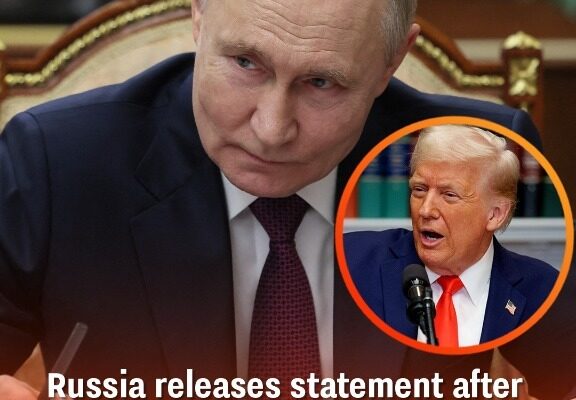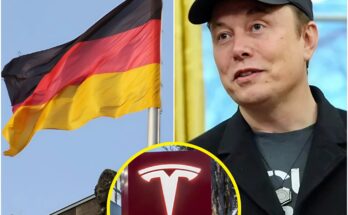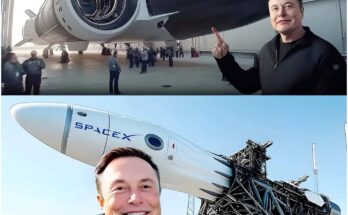In a dramatic congressional hearing that captured headlines around the world, former President Donald Trump read aloud a letter from Ukrainian President Volodymyr Zelenskyy. The letter, which expressed Zelenskyy’s willingness to sit down for negotiations, has now become a lightning rod for debate in international politics. Shortly after the hearing, a Kremlin spokesperson issued a statement that shed new light on how Moscow views Zelenskyy’s readiness to negotiate with Russia. This article examines the key moments of the hearing, breaks down the contents of Zelenskyy’s letter, explores the Kremlin’s reaction, and discusses the broader implications for peace efforts and global security in today’s complex geopolitical environment.
On March 4, 2025, the U.S. Congress was abuzz with tension and anticipation. In a session that was as unexpected as it was newsworthy, former President Donald Trump took center stage to read a letter from Ukrainian President Volodymyr Zelenskyy. The hearing itself was already under intense scrutiny given the ongoing war in Ukraine and the heated debates in Washington about how best to handle the crisis. The letter, which Trump read out loud, was meant to show that Zelenskyy was ready to engage in dialogue, even if the terms were not yet clear.
In a moment that many viewers found both surprising and symbolic, Trump’s reading of the letter marked a shift from the usual script seen in congressional sessions. Instead of discussing legislative details or policy proposals, the session turned into a stage for international diplomacy—a role that Trump has often embraced with his characteristic bravado. Yet, for many on Capitol Hill, this was more than just a reading of words on a page. It was a public declaration of a potential new direction in the U.S. approach to the conflict in Ukraine.
B. The Content of Zelenskyy’s Letter
The letter itself was brief but loaded with meaning. In it, President Zelenskyy stated plainly that Ukraine was ready to come to the negotiating table. He wrote that his government was prepared to enter talks that could lead to a peaceful resolution to the conflict. In one key passage, Zelenskyy mentioned that Ukraine would be open to discussing terms related to a minerals deal—a point that had raised hopes among some international observers for a creative, if unconventional, path to peace.
Zelenskyy’s message was straightforward: “Ukraine is ready to come to the negotiating table as soon as possible.” This declaration was significant, especially coming from a leader whose country has been under relentless attack since Russia invaded in 2022. By offering his readiness to negotiate, Zelenskyy aimed to signal both his commitment to ending the war and his willingness to consider a range of diplomatic solutions. However, the letter also left many questions unanswered, including the conditions under which any talks might take place and what concessions, if any, Ukraine might be expected to make.
II. The Kremlin’s Reaction: Weighing the Negotiation Offer
A. Dmitry Peskov’s Statement
Shortly after Trump’s reading of the letter, Kremlin spokesperson Dmitry Peskov stepped forward to comment on the development. In a measured statement, Peskov said, “We are positive. The question is with whom to sit at the negotiating table.” Peskov’s words were carefully chosen. On one hand, he seemed to welcome the possibility of negotiations, suggesting that the Kremlin viewed Zelenskyy’s offer as a step toward dialogue. On the other hand, his statement left open the question of who would ultimately be allowed to participate in any talks.
Peskov’s response is part of a broader Kremlin narrative that has long questioned Western involvement in Ukraine. For Moscow, the idea of entering negotiations is not entirely new. Russia has repeatedly argued that Ukraine’s government is partly to blame for prolonging the conflict by refusing to make meaningful concessions. Peskov’s statement reflects this view, implying that while negotiations may be possible, the terms and the participants in such talks would be dictated by factors far beyond Zelenskyy’s simple offer.
B. Legal and Political Hurdles
One of the complications in any potential negotiation is the legal framework in Ukraine. In 2022, a decree was issued by the Ukrainian government that forbids direct negotiations with President Vladimir Putin. This legal barrier means that, even if Zelenskyy is eager to negotiate, he must work around rules that make it nearly impossible to engage directly with Moscow. Peskov’s statement indirectly acknowledged this issue by highlighting that, while there is a willingness to negotiate, the question remains as to who will be allowed at the table.
The Kremlin’s response also carries a strategic message: it suggests that Moscow is ready to use this opportunity to shape the future of the conflict. By welcoming the idea of negotiations in principle, Peskov appears to be keeping the door open for a future dialogue that would benefit Russian interests. This message is meant not only for international audiences but also for domestic ones in Russia, where many see any move toward peace as a sign that the Kremlin is in control of the narrative.
III. The Broader Diplomatic Context
A. The Ongoing War in Ukraine
The meeting between Trump and Zelenskyy occurred amid a backdrop of relentless conflict in Ukraine. Since Russia’s invasion in 2022, Ukraine has been fighting for its sovereignty and survival. The war has resulted in significant casualties, widespread destruction, and a deep humanitarian crisis that has drawn international condemnation. Amid these conditions, every gesture—from military maneuvers to diplomatic overtures—carries immense weight.
For Ukraine, the war is not just a territorial conflict but a struggle to uphold democratic values and secure the future of its people. Zelenskyy’s readiness to negotiate must be viewed against this backdrop. While the offer of negotiations might seem like a hopeful sign, it also raises difficult questions about what Ukraine might have to give up in order to achieve peace. Many Ukrainians fear that any deal could compromise their country’s independence or force them into unfavorable terms with Russia.
B. U.S. Domestic Politics and International Negotiations
The public reading of Zelenskyy’s letter by Trump is also deeply intertwined with U.S. domestic politics. Former President Trump has long been a polarizing figure, and his involvement in foreign affairs continues to stir controversy. His decision to read the letter in Congress was likely intended as a political statement—a way to bolster his image as a leader who can influence international outcomes even after leaving office.
Critics argue that Trump’s actions serve to complicate U.S. foreign policy rather than clarify it. By publicly engaging in negotiations through a letter read in Congress, Trump blurs the lines between political theater and genuine diplomatic engagement. This move has drawn both praise and criticism from American lawmakers, with some seeing it as a bold step toward renewed U.S. leadership in international peace efforts, and others dismissing it as a distraction from more serious policy issues.
IV. International Reactions and the Role of Key Players
A. Reactions from European Leaders
In Europe, reactions to Trump’s reading and the Kremlin’s response have been mixed. Some European officials have expressed cautious optimism that Zelenskyy’s willingness to negotiate could open the door to a new round of diplomatic efforts. European leaders understand that the conflict in Ukraine has far-reaching consequences for regional stability and the security of the continent. For them, any sign of dialogue is welcome, provided it does not come at the cost of Ukraine’s sovereignty.
However, many European policymakers are also wary. They note that the legal restrictions in Ukraine and the deep-rooted mistrust between Ukraine and Russia make negotiations a challenging prospect. The European response has been characterized by a call for patience and a focus on building multilateral strategies that include NATO and other international institutions. Leaders such as French President Emmanuel Macron have stressed that a successful peace process in Ukraine must involve a united Western approach, rather than unilateral moves by any one party.
B. U.S. Political and Media Responses
In Washington, reactions have been sharply divided. Supporters of Trump’s approach argue that the public airing of Zelenskyy’s letter is a step toward greater transparency and a potential catalyst for peace negotiations. They see Trump’s actions as a reminder that even in conflict, dialogue remains essential. On the other hand, many U.S. lawmakers and media analysts have criticized the move, arguing that it is more about political posturing than about achieving meaningful results.
Several prominent media outlets have dissected the incident, with pundits debating whether Trump’s decision to read the letter was appropriate given the sensitive nature of the ongoing war. Some commentators have suggested that the move undermines the seriousness of the conflict, reducing a complex geopolitical issue to a series of soundbites. Others, however, believe that any discussion of negotiation is a positive sign, even if the timing and context are far from ideal.
C. The Kremlin’s Strategic Messaging
From Moscow’s perspective, the public exchange is an opportunity to reinforce its long-held views about the conflict in Ukraine. Kremlin spokesperson Dmitry Peskov’s measured statement—that the key issue is “with whom to sit at the negotiating table”—is designed to leave the door open for future discussions on Moscow’s terms. This message is carefully crafted to appeal to domestic audiences, many of whom are skeptical of Western involvement in Ukraine, as well as to international observers who are looking for signs of a possible de-escalation.
Peskov’s comments also serve to counter the narrative that Ukraine is solely responsible for the conflict. By emphasizing that negotiations will eventually depend on the choices of all parties involved, including Russia, the Kremlin positions itself as a rational actor willing to engage in dialogue. However, the legal and practical hurdles—such as Ukraine’s 2022 decree that prohibits negotiations with President Putin—mean that any future talks will be fraught with complexity.
V. Analysis of the Strategic Implications
A. The Prospect of Renewed Negotiations
Zelenskyy’s letter, with its offer to negotiate, introduces a new variable into the already complicated equation of U.S.-Ukraine-Russia relations. For Ukraine, the idea of returning to the negotiating table comes at a time when the war has exacted a heavy toll on its people and infrastructure. The possibility of dialogue, even under difficult conditions, offers hope that a peaceful resolution might eventually be within reach.
However, the terms of any potential negotiation remain deeply contentious. Zelenskyy’s willingness to negotiate does not automatically translate into favorable conditions for Ukraine. Critics on all sides warn that Ukraine may be forced to make painful concessions—be they territorial, political, or economic—in exchange for peace. The Kremlin, for its part, is likely to use any negotiation as an opportunity to advance its own strategic interests, potentially at the expense of Ukraine’s long-term sovereignty.
B. The Impact on Global Energy and Security
One of the lesser-discussed aspects of the meeting involves the ongoing discussions about a minerals deal between the United States and Ukraine. In his reading of the letter, Trump highlighted that Zelenskyy had mentioned Ukraine’s readiness to sign an agreement on rare earth minerals “at any time convenient to the U.S.” This reference hints at the complex interplay between diplomacy, economic interests, and national security.
For many international observers, the minerals deal is significant because it ties together issues of energy security, global supply chains, and geopolitical influence. Rare earth minerals are critical for modern technology, including military equipment, and controlling their supply can shift the balance of power in global markets. The potential for negotiations over such a deal adds another layer of complexity to the ongoing conflict and may influence how both the United States and Russia approach their diplomatic strategies.
C. The Role of Personalities in Shaping Diplomacy
The public nature of the exchange between Trump and Zelenskyy—and the subsequent comments by Kremlin spokesperson Peskov—underscores how individual personalities can shape international diplomacy. Trump’s characteristic blend of bluster and candor has long made him a polarizing figure, while Zelenskyy’s measured yet defiant stance has earned him both admiration and criticism. This clash of styles highlights a broader reality: in today’s media-driven world, the personal dynamics between world leaders are often as important as the policies they champion.


